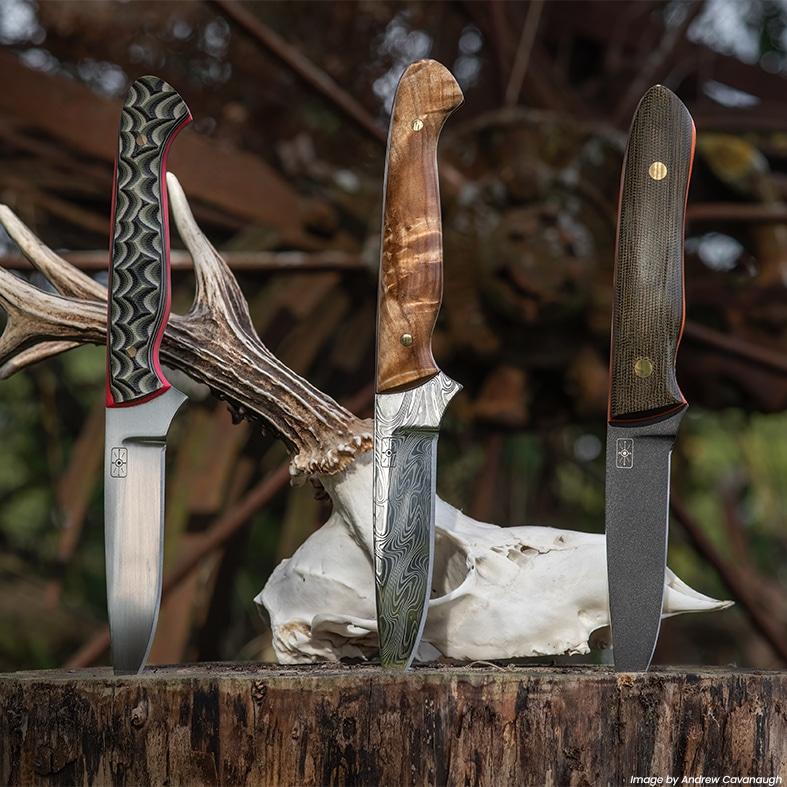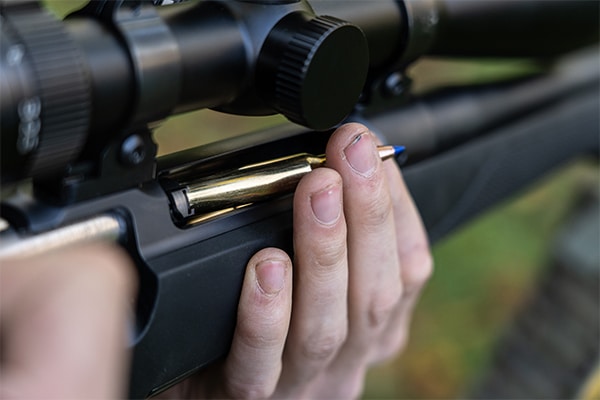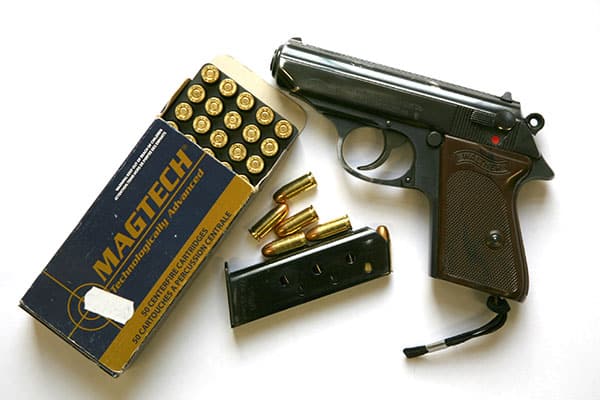
Shot sizes
Traditionally, different pellet sizes have been favoured for different types of shooting but how does it equate in non-lead shot?
Get information on the legal shooting season for mammals and birds in the UK.
Apply for funding for your project or make a donation today
Comprehensive information and advice from our specialist firearms team.
Everything you need to know about shotgun, rifle and airgun ammunition.
Find our up-to-date information, advice and links to government resources.
Everything you need to know on firearms law and licensing.
All the latest news and advice on general licences and how they affect you.


The Knives Act 1997 creates criminal offences in relation to the possession or marketing of, and publications relating to knives.
Here are simplified extracts of the Knives Act for your information:
The offences in relation to marketing
A person is guilty of an offence if he or she markets a knife in a way which:
a) indicates, or suggests, that it is suitable for combat; or
b) is otherwise likely to stimulate or encourage violent behaviour involving the use of the knife as a
An indication or suggestion that a knife is suitable for combat may, in particular, be given or made by a name or description:
a) applied to the knife;
b) on the knife or on any packaging in which it is contained; or
c) included in any advertisement which, expressly or by implication, relates to the knife.
A person markets a knife if:
a) he or she sells or hires it;
b) he or she offers, or exposes, it for sale or hire; or
c) he or she has it in his possession for the purpose of sale or
A person is guilty of an offence if he or she publishes any written, pictorial or other material in connection with the marketing of any knife and that material:
a) indicates, or suggests, that the knife is suitable for combat; or
b) is otherwise likely to stimulate or encourage violent behaviour involving the use of the knife as a
A person who is guilty of an offence within the Act is liable on summary conviction to imprisonment for a term not exceeding six months or to a fine not exceeding the statutory maximum, or to both; or, on conviction on indictment to imprisonment for a term not exceeding two years or to a fine, or to both.
It is a defence for a person charged with the offences above to prove that:
a) the knife was marketed, or the material was published in connection with marketing a knife was;
i) for use by the armed forces of any country;
ii) as an antique or curio; or
iii) as falling within such other category (if any) as may be
b) it was reasonable for the knife to be marketed in that way; and
c) there were no reasonable grounds for suspecting that a person into whose possession the knife might come in consequence of the way in which it was marketed, or of the publishing of the material, would use it for an unlawful
“Knife” means an instrument which has a blade or is sharply pointed; “Marketing” and related expressions are to be read with section 1(4); “Prescribed” means prescribed by regulations made by the Secretary of State.
“Publication” includes a publication in electronic form and, in the case of a publication which is, or may be, produced from electronic data, any medium on which the data is stored;
“Suitable for combat” means suitable for use as a weapon for inflicting injury on a person or causing a person to fear injury;
“Violent behaviour” means an unlawful act inflicting injury on a person or causing a person to fear injury.
In England, Scotland and Wales it is an offence to sell a bladed item to a person under the age of 18 years. This includes axes, knife blades and razor blades and any other item that is bladed or is sharply pointed.
However, you may sell to persons under 18 years a folding pocket-knife (non locking) if the cutting edge of its blade does not exceed three inches, or razor blades permanently enclosed in a cartridge or housing where less than two millimetres of any blade is exposed beyond the plane which intersects the highest point of the surfaces, preceding and following such blades.
Additionally, in Scotland only, the Police, Public Order and Criminal Justice (Scotland) Act 2006 (in addition to knives and knife blades etc) also prohibits the sale of swords to under 18s.
The sale of knives or knife blades only to persons aged 16 upwards is also exempt if the knife or knife blade is ‘designed for domestic use’.
If you have any doubt about a customer’s age, always ask to see photo ID, such as a driving licence, or one of the many local ID schemes used by shops who sell alcohol.
Many proof of age cards are government-approved under the Proof of Age Standards Scheme (PASS) and include many cards such as Validate, CitizenCard, Young Scot and many others issued by local authorities.
Each proof of age card carries a PASS approved hologram.
For more details see – www.pass-scheme.org.uk.
If in doubt, don’t sell a knife or bladed instrument and ask the young person to come back with proof of age or with an adult.
Although it is illegal to sell a knife, bladed/sharply pointed instrument to under 18s, there is a defence if you can prove that you believed the young person was over eighteen or that you had reasonable grounds for believing so.
The Criminal Justice and Licensing Act 2010 amends the Criminal justice Act 1988 in relation to the selling or letting or hire of knives and other articles with a blade or point (axes, knives, knife blades, swords and unenclosed razor blades).
The amendments extend to Scotland only. It provides a defence for a person charged for an offence of selling or hiring to show that they believed the person to whom the article was sold or let on hire (referred to below as “the purchaser or hirer”) was of or above the relevant age, and either;
i) the accused had taken reasonable steps to establish the purchaser or hirer’s age, or
ii) no reasonable person could have suspected from the purchaser or hirer’s appearance that the purchaser or hirer was aged under the relevant
“The relevant age” means –
a) in the case where the article is a knife or knife blade designed for domestic use, 16 years, and
b) in any other case, 18
The accused is to be treated as having taken reasonable steps to establish the purchaser or hirer’s age if and only if the accused was shown a Passport, European Union photocard driving licence (if the document would have convinced a reasonable person) or such other documents as the Scottish Ministers may prescribe.
Please Note: the above defence can only be relied upon if you comply with its requirements.
Should you choose to verify age by other means it is allowed but you will have to defend yourself accordingly if reported for an offence. You may wish to see a valid shotgun or firearm certificate as they show a photograph and the date of birth of the holder.
The Sale and Hire of Crossbows, Knives and Certain Other Articles to Children and Young Persons (Scotland) Order 2011 prescribes that a photographic identity card bearing the Proof of Age Standards Scheme hologram is an alternative form of ID that may be accepted.
Got a question? Email us on firearms@basc.org.uk or call 01244 573 010.
© BASC July 2023

Traditionally, different pellet sizes have been favoured for different types of shooting but how does it equate in non-lead shot?

A broad overview of advice and guidance related to key terminology and designed to assist police firearms enquiry officers

Information on the use of handguns for humane dispatch in Scotland, England and Wales, including legislation and licence applications.
Sign up to our weekly newsletter and get all the latest updates straight to your inbox.
© 2025 British Association for Shooting and Conservation. Registered Office: Marford Mill, Rossett, Wrexham, LL12 0HL – Registered Society No: 28488R. BASC is a trading name of the British Association for Shooting and Conservation Limited which is authorised and regulated by the Financial Conduct Authority (FCA) under firm reference number 311937.
BASC Direct Ltd is an Introducer Appointed Representative of Agria Pet Insurance Ltd who administer the insurance and is authorised and regulated by the Financial Conduct Authority, Financial Services Register Number 496160. Agria Pet Insurance is registered and incorporated in England and Wales with registered number 04258783. Registered office: First Floor, Blue Leanie, Walton Street, Aylesbury, Buckinghamshire, HP21 7QW. Agria insurance policies are underwritten by Agria Försäkring.
If you have any questions or complaints about your BASC membership insurance cover, please email us. More information about resolving complaints can be found on the FCA website or on the EU ODR platform.